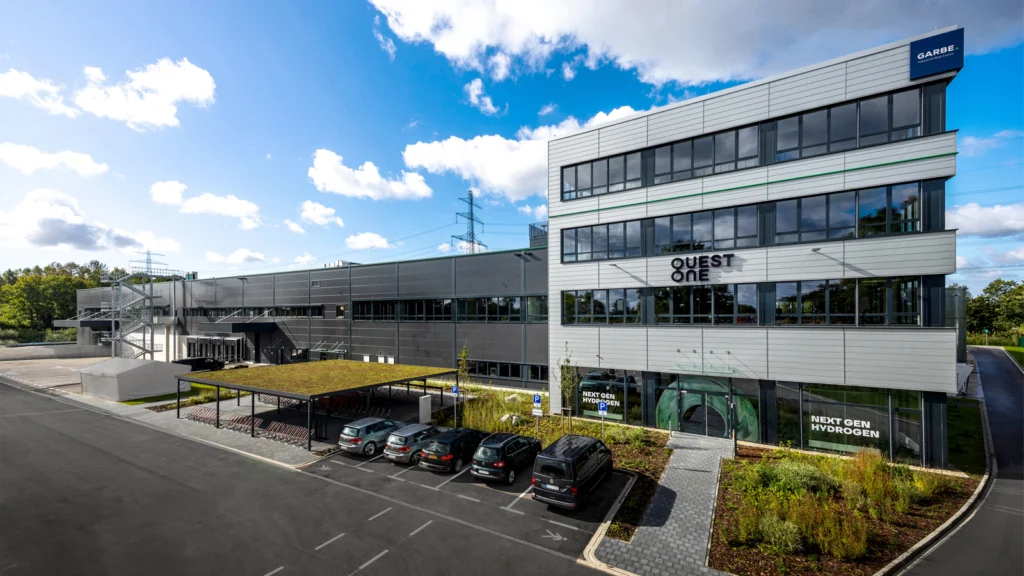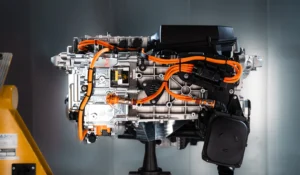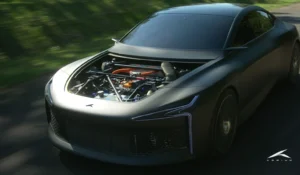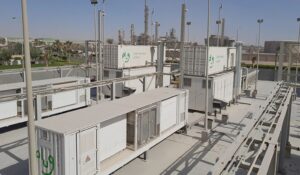Quest One cuts hydrogen stack production time down to ONE hour: opens new Hamburg gigafactory

Quest One has just kicked off a major milestone by opening its new Gigahub in Hamburg and, more importantly, by slashing hydrogen stack production time down to just one hour.
The automated production facility is set to ramp up output, with each stack – the core component of electrolysers – now being manufactured a whopping 75% faster than before.
The new Gigahub in Hamburg will handle serial production of PEM electrolysis stacks. The site’s automation techniques, borrowed from the automotive sector, are designed to produce over five gigawatts of electrolysis capacity annually when fully operational.
That means green hydrogen can be made more readily available, speeding up its adoption in industries with heavy energy demands.
Federal Chancellor Olaf Scholz was on hand at the opening event to highlight the significance of this step: “Until now, electrolysers have been made by hand. If the step towards automated production on an industrial scale is successful, the costs and time required for production will fall.
Serial production should reduce production time here in Rahlstedt by 75 percent. This is a real milestone for the rapid hydrogen ramp-up.”
Automation, precision and scalability from the automotive sector
It’s not just about speed, though – automation is bringing efficiency, precision, and scalability into the mix, ensuring stacks are built to consistently high standards.
As Quest One CEO Robin von Plettenberg noted, the hydrogen industry is about to grow in ways “we can scarcely imagine today,” and Quest One is positioning itself to lead that charge.
This new Gigahub in Hamburg is a major innovation for the company (whose parent company is MAN Energy Solutions), previously known as H-TEC Systems.
With a fresh name and an even bigger ambition, Quest One is setting its sights on transforming the hydrogen industry.
By integrating advanced production methods, it aims to contribute to the global energy transition and help industries ditch fossil fuels in favour of green hydrogen.
According to Dr. Peter Tschentscher, Hamburg’s First Mayor, “The availability of green hydrogen is a crucial factor for the energy transition and the competitiveness of the German industry. The opening of the Quest One Gigahub is a milestone in this respect.”
Quest One (H-TECH)’s Hamburg gigafactory
The Hamburg Gigahub itself is a symbol of sustainability. Built in just 18 months, the facility spans over 12,000 square metres, with green roofs equipped with photovoltaic (solar) panels to generate renewable energy.
And it’s not just about the numbers – the Gigahub is designed with the future in mind, aiming for “Platinum” certification from the German Sustainable Building Council (DGNB) by 2025.
Production, research, and development all happen under one roof at the Gigahub, and the site will employ 200 staff to get things up and running.
It’s also going to serve as a customer and training centre, making it a hub for innovation as much as production.
Cutting greenhouse gas emissions
As Quest One’s CEO, Robin von Plettenberg, put it: “With our mission firmly in sight: avoiding one percent of global greenhouse gas emissions by 2050.” The Gigahub plays a central role in that mission.
At the heart of Quest One’s operation are the PEM electrolysis stacks, which use renewable electricity to split water into hydrogen and oxygen.
These stacks are vital to scaling up the hydrogen economy and making it a real alternative to fossil fuels.
With automated production now underway, Quest One is aiming to meet the growing demand for green hydrogen.
Dr. Uwe Lauber, CEO of MAN Energy Solutions, noted: “We are giving the go-ahead for the most modern production plant in the hydrogen economy in the whole of Europe.
With this plant, MAN Energy Solutions and Quest One are making a substantial contribution to the establishment and industrialization of sustainable future technologies in Germany and Europe.”










